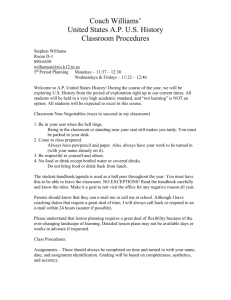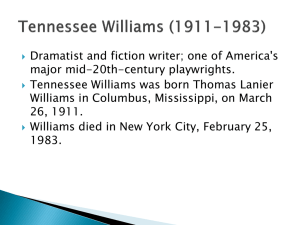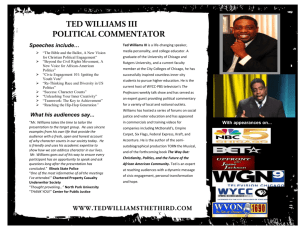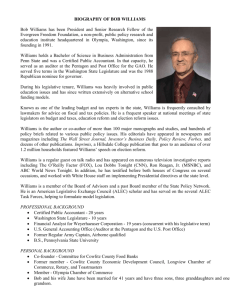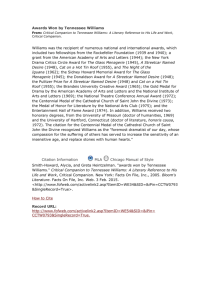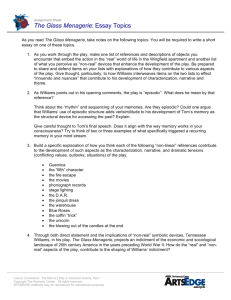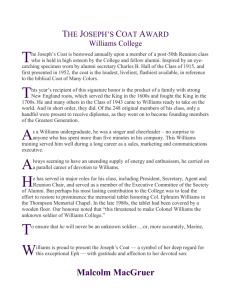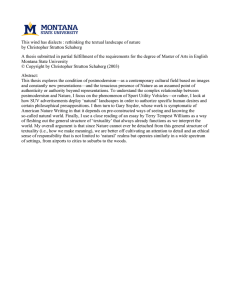Terry Tempest Williams Bio
advertisement
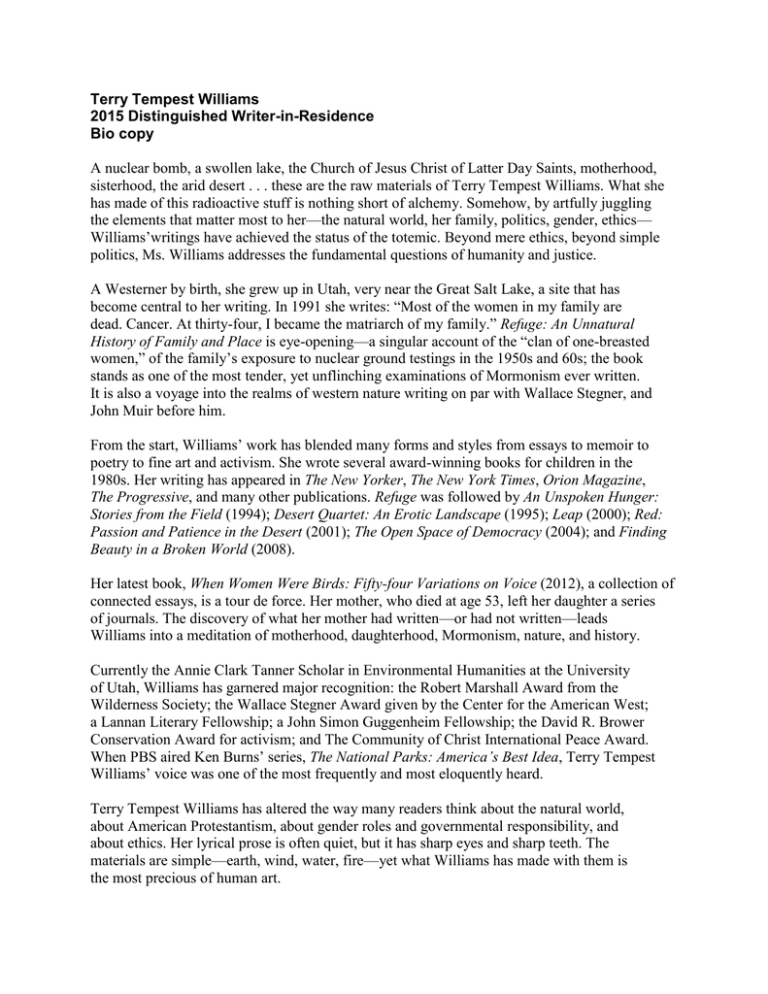
Terry Tempest Williams 2015 Distinguished Writer-in-Residence Bio copy A nuclear bomb, a swollen lake, the Church of Jesus Christ of Latter Day Saints, motherhood, sisterhood, the arid desert . . . these are the raw materials of Terry Tempest Williams. What she has made of this radioactive stuff is nothing short of alchemy. Somehow, by artfully juggling the elements that matter most to her—the natural world, her family, politics, gender, ethics— Williams’writings have achieved the status of the totemic. Beyond mere ethics, beyond simple politics, Ms. Williams addresses the fundamental questions of humanity and justice. A Westerner by birth, she grew up in Utah, very near the Great Salt Lake, a site that has become central to her writing. In 1991 she writes: “Most of the women in my family are dead. Cancer. At thirty-four, I became the matriarch of my family.” Refuge: An Unnatural History of Family and Place is eye-opening—a singular account of the “clan of one-breasted women,” of the family’s exposure to nuclear ground testings in the 1950s and 60s; the book stands as one of the most tender, yet unflinching examinations of Mormonism ever written. It is also a voyage into the realms of western nature writing on par with Wallace Stegner, and John Muir before him. From the start, Williams’ work has blended many forms and styles from essays to memoir to poetry to fine art and activism. She wrote several award-winning books for children in the 1980s. Her writing has appeared in The New Yorker, The New York Times, Orion Magazine, The Progressive, and many other publications. Refuge was followed by An Unspoken Hunger: Stories from the Field (1994); Desert Quartet: An Erotic Landscape (1995); Leap (2000); Red: Passion and Patience in the Desert (2001); The Open Space of Democracy (2004); and Finding Beauty in a Broken World (2008). Her latest book, When Women Were Birds: Fifty-four Variations on Voice (2012), a collection of connected essays, is a tour de force. Her mother, who died at age 53, left her daughter a series of journals. The discovery of what her mother had written—or had not written—leads Williams into a meditation of motherhood, daughterhood, Mormonism, nature, and history. Currently the Annie Clark Tanner Scholar in Environmental Humanities at the University of Utah, Williams has garnered major recognition: the Robert Marshall Award from the Wilderness Society; the Wallace Stegner Award given by the Center for the American West; a Lannan Literary Fellowship; a John Simon Guggenheim Fellowship; the David R. Brower Conservation Award for activism; and The Community of Christ International Peace Award. When PBS aired Ken Burns’ series, The National Parks: America’s Best Idea, Terry Tempest Williams’ voice was one of the most frequently and most eloquently heard. Terry Tempest Williams has altered the way many readers think about the natural world, about American Protestantism, about gender roles and governmental responsibility, and about ethics. Her lyrical prose is often quiet, but it has sharp eyes and sharp teeth. The materials are simple—earth, wind, water, fire—yet what Williams has made with them is the most precious of human art.

